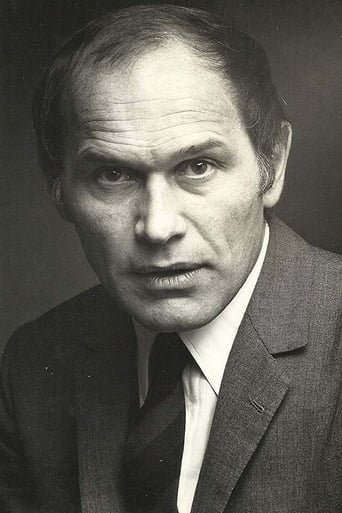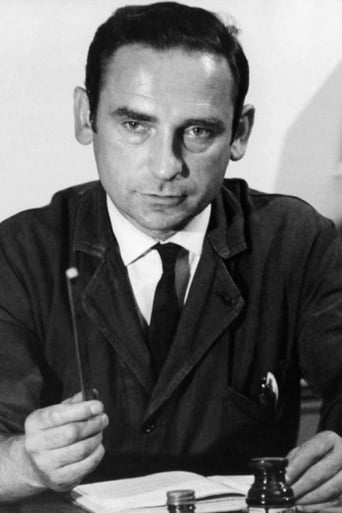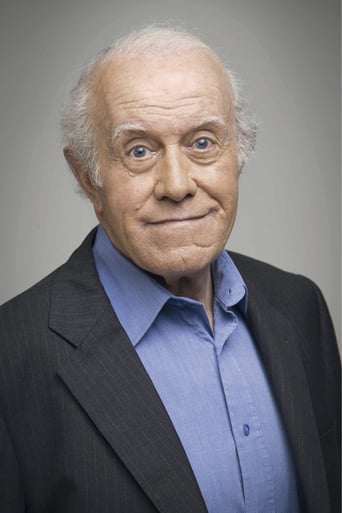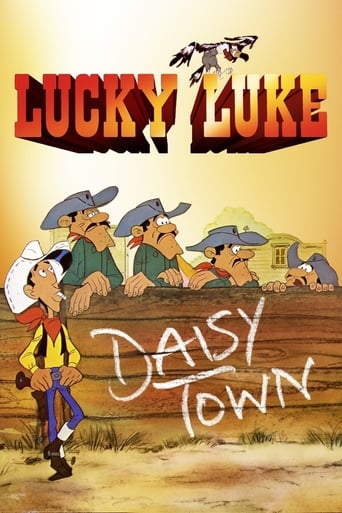
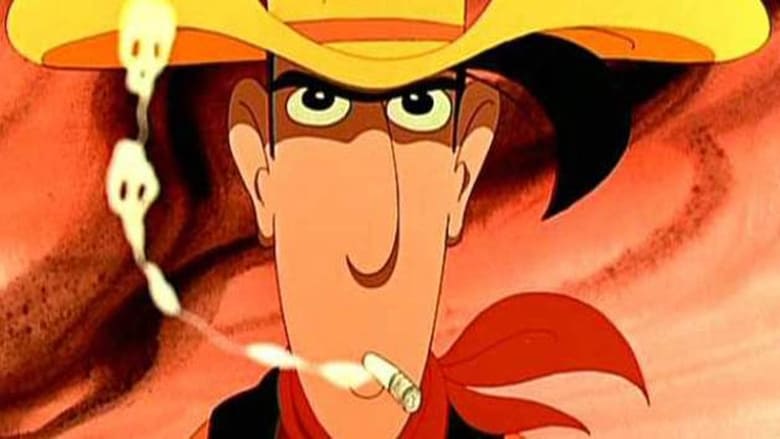
Daisy Town (1971)
When the members of a caravan of pioneers find a daisy growing in the middle of the desert they decide to stop there and to build their town on this very spot. Houses soon spring up like mushrooms, immediately followed by a bank, a saloon, a prison, etc. Daisy Town is born. Unfortunately a city does not go without its bad boys and the peaceful place is soon turned into a lawless place. To restore law and order, a lawman is needed. Lucky Luke, the cowboy who shoots faster than his shadow, will be this man: all the villains had better watch out!
Watch Trailer
Cast
Reviews
I like the storyline of this show,it attract me so much
Such a frustrating disappointment
A great movie, one of the best of this year. There was a bit of confusion at one point in the plot, but nothing serious.
One of the worst ways to make a cult movie is to set out to make a cult movie.
Back in my childhood I really loved the Lucky Luke Comics. I have seen nearly all of the visualizations before, but "Daisy Town" is the best. The movie is lovingly made, a masterpiece. We got to know nearly everything and everyone which/who plays a role in the Lucky Luke universe: First of all there are Lucky Luke and Jolly Jumper, the lonesome Cowboy and his clever horse. The Daltons, the main antagonists. And a lot more characters which appear in many Lucky Luke comics: the undertaker and his vulture, the sleeping Mexican, and so on. If you like Lucky Luke, you must have seen this movie, and if not, it is a good way to get into the series. "I'm a poor lonesome cowboy, I'm a long, long way from home"
In 1971, the myth of the Conquest of the West, of the eternal battle between pioneers moved by the hopes of greener grasses and brighter futures affronting the Natives who were selfishly keeping their lands, was already damaged by the effects of the New Hollywood period, the very era that put all the preconceived notions established by Hollywood Golden Age into a new and more thought-provoking perspective.Indeed, the days of John Wayne were all over, it was the time where Sergio Leone depicted an Old West that civilization already reached, reducing the last remaining protagonists to the sordid roles of bounty hunters and greedy antiheroes, where duels were even more operatic because they consecrated the triumph of dirty characters who had no place whatsoever in the new order, already overpowered by technology, capitalism and progress. The New Western sealed the fate of the frontier spirit.Leone's Man-With-No-Name, Altman's McCabe or Peckinpah's 'wild bunch' were the last lone wolves whose demise in blazes of glory or modest triumph were only the agonizing cries of a state of mind that no longer existed. And fittingly, this new kind of revisionist Western rehabilitated the Indians through the unforgettable "Little Big Man" while the "Conquest of the West"' fate was to be turned by derision by Mel Brooks as if Western became a parody of itself whether meant for tragic, comic and sometimes, tragicomic purposes, just like Peckinpah's unforgettable "Ballad of Cable Hogue".And it's not a coincidence that the most memorable Westerns were then made by European directors, and not a hazard either that the film I'm reviewing, deprived from the cynicism my pompous introduction just described, is French. Only, in a European mind, the Western myth was still a subject of fascination. And it really shows in "Daisy Town", the adaptation of the adventures of Lucky Luke, the iconic cowboy who shoots faster than his shadow, and based on a new screenplay from René Goscinny, probably the least likely film to reconcile the old-school and new Western, "How the West was Won" and the Dollars trilogy, with humor as the common denominator.The film opens with one of these widescreen shots that would have made John Ford proud, a caravan of pioneers halt at the sight of a daisy on the ground, where they decide to settle down, it's a moment of pure poetry that says a lot about the faith that inhabited pioneers' hearts in their quest for the Promised Land. Indeed, when men believe in destinies, isn't that natural that to believe in omens. The rest is a tribute to good old-fashioned Western, a city is built with the most basic elements: a saloon to welcome the thirstiest ones, a prison for the obligatory troublemakers, an undertaker, a stagecoach station, a school and so on and so forth. The town would naturally welcome the darker sides of the Far West and if it wasn't for the providential arrival of Lucky Luke, the poor lonesome cowboy, "Daisy Town" would have died in birth.Lucky Luke is one of the most popular comic-books heroes of the French-Belgian school; he was 25 at the film's release but already a significant icon of European Pop-Culture. Created by Morris who spent his youth in America and was probably influenced by the great Western epics, he embodies this vision of the Old West that exceeded the limits of its original settings, and made all the European kids' childhood, whether they disguised as cowboys or Indians. And the contribution with René Goscinny, one of the best writers of his generation, gave the comic-book this zest of hilarity and zaniness mostly relying on spoof humor. Goscinny, who was also the creator of Astérix adapted in two movies before 1971, decided it was time to let Lucky Luke's star shine on the silver screen, needless to say, the film met with popular success.But the star doesn't belong only to Lucky Luke, the series was also popular for Lucky Luke's archenemies: the four Dalton brothers whose heights were inversely proportional to their vileness and intelligence, making Joe, the smallest and leader, the most hateful and Averell, the most sympathetic of the bunch. Goscinny a unique talent to make stupid characters absolutely endearing and on that department, Averell totally steals the show, who can resist to his craving for a chicken while he's unplugging the feathers from his tar-covered brother? The Daltons have as much screen time as Lucky Luke, whose lines are often reduced to a laconic "yup" thus, a hilarious contrast of personalities and an unstoppable source of gags.Lucky Luke is almost Eastwoodized for the sake of the story and it's not surprising that his confrontation with the Daltons reaches its climax during a duel, which is probably the greatest tribute to Leone from any cinematic source. And the film concludes with another mandatory archetype: the war between Indians and pioneers, and here again, Natives have never been so hilarious since "Little Big Man" or Goofy's "Calforny'er Bust" and by hilarious, I don't mean in a condescending way, just listen to the Chief's claims during the treaty and you'll get an idea. Joe Dalton's warning of the dangers of Civilization speaks almost like a eulogy to the Old West, powerless when money, gold and profit are a stakes, a sad fate foreshadowed by the bittersweet ending of "Daisy Town".And what a finale! Claude Bolling's poignant "Poor Lonesome Cowboy" that would become one of the cowboy's trademarks and one of the most defining themes of my childhood, is the best swan song the West could ever have. And after all the laughs, all the thrilling battles, epic duels and jovial square dances, the ending of "Daisy Town" reaches an emotional state that even the cinematic adaptation starring Terrence Hill, didn't match, not to mention the horrendous English version, that sounded like an impersonation contest (with all due respect for Rich Little)
The first incarnation of the Lucky Luke comics to be done for the screen.Belvision still had a ways to go with the quality of their animation, but this still works, due in no small part to the talents of Morris and Goscinny which translate well in any language or medium.I'd love to see it in the original language with subtitles but I have to settle for the American version which I've had for years....And it's pretty lame!For some reason the powers that be decided to use Rich Little and Rich Little only for ALL the voices - and it really hurts....Yeah, he's a pretty good V/O guy, but ALL the voices?? No way! Lucky Luke sounds like a bad rendition of Gary Cooper and the rest of the cast sound like lame takeoffs of other celebs....Ugh!There's one very clever and poignant sequence in the film that shows the plight of the American Indian in a humorous but effective way that we in America don't seem to get. The poor guy is sitting in the desert and the next thing you know he's surrounded by superhighways, shown in live action no less.1978's sequel: "Ballad of the Daltons" was superior in every way, they'd really hit their stride by that time.
A group of pioneers are on their way out west, when they come across a solitary daisy in the vast desert. The wagon train unloads and sets up 'Daisy Town,' named for the solitary flower. Within very little time, the town has sprung up, and even quicker, crime has come to the little town. All seems bent on recklessness, until one day, Lucky Luke rides into town, on his horse Jolly Jumper. Every bad guy in town tries to take a shot at Luke, but the man seems to always be 2 steps ahead, as one implies, 'This kid can shoot faster than a shadow.' The mayor of Daisy Town then recruits Luke as the new Sheriff. The law seems to once again be upheld, square dances go off without a hitch, until word comes that the fiendish Dalton Brothers are in the area. Led by the diminutive Joe Dalton, the big-talking desperado and his brothers begin to wage a battle against Luke's wits and the townspeople.The film is based on a French comic-book, so the style is pretty close, though the story's humor at times doesn't quite translate over into English that well. some interesting visual gags abound, such as the building of the town, as building's spring up like flowers, and town signs come with paint and lettering included. Luke also defies logic several times. There is a nicely paced sequence at the end where Luke and the Dalton's have a showdown, and it delves into all the western clichés: growing shadows, closed windows, deserted streets,etc.A nice little film ,though probably won't be figured out by the mass American audience. After this, the follow-up 'The Ballad of the Dalton Gang' was released, though with a different voice-dub cast.
